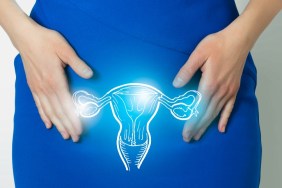The age old saying that tells us that too much or too little of a good thing, is a bad thing, couldn’t be more true when it comes to fertility as it pertains to diet and exercise. Even if you don’t want a baby now, you should think about how your lifestyle impacts your ability to conceive.
Let’s start with nutrition, which has a significant impact on fertility.
“Gaining weight can lead to irregular ovulation and if you have irregular or infrequent ovulation it could make it harder to get pregnant as there are fewer chances to get pregnant over a fixed interval of time, and the timing of when to have sex prior to ovulation is an important factor, which can be hard to predict when there is an irregular, unpredictable cycle,” says Dr Lucky Sekhon, OBGYN and reproductive endocrinologist. “For women with conditions such as polycystic ovary syndrome (PCOS), losing up to 5% of one’s body weight, if they are overweight, may help to restore ovulation. Excess fat and obesity has been shown to be associated with poor egg quality, implantation failure and a higher miscarriage rate.”
Excess carbohydrate intake.
One of the leading causes of fertility issues is PCOS. For women with PCOS, there is a tendency towards the cells of the body being resistant to insulin. “Consuming high sugar content foods can therefore lead to very high levels of insulin in the body’s effort to utilize and store the sugars to control blood sugar levels,” says Dr. Sekhon. “These high insulin levels can result in an overdrive of male hormones called androgens. The ovaries are a site of production of testosterone, but this production can be increased above the normal range of what is typical in women in the setting of PCOS, especially in women who have insulin resistance. This is worsened with a high carbohydrate diet. Having an unhealthy, carb-loaded diet can lead to worsening of male pattern hair growth, acne and hormonal imbalances that contribute to irregular ovulation.”

Caloric restriction leading to an energy deficit.
While limited carbs can have a big impact for the better, it’s important not to fall into any extreme. Dr. Sekhon underlines that for women with overly restricted diets with low caloric intake, the energy deficit can lead to the brain shunting resources and energy away from ovulation by shutting down the signals from the pituitary that tell the ovary to select, mature, and ovulate an egg. “This can lead to interruption of regular cycles, with long period of missing a period entirely. This is not only a problem for when trying to conceive, but also leads to a chronic low estrogen level, which can contribute to thinning and weakening of the bones and eventual osteoporosis.”
A sedentary lifestyle is a problem, too.
A sedentary lifestyle can contribute to weight gain, lack of muscle and slowed metabolism and, as Dr. Sekhon explained, weight gain can have a detrimental impact on fertility. On the flip side she points out that excessive high intensity exercise can lead to lack of ability to ovulate. “Excessive, vigorous exercise which burns more calories than what is being consumed can lead to an energy deficit which can lead to irregular or absent cycles.
Where’s the balance?
In general, Dr. Sekhon recommends a mediterranean style diet to her patients. “This is a diet high is lean protein, low in refined or processed carbohydrates and rich with the ‘good fats’ such as avocado and vegetables, nuts and fruits that are a rich source of vitamins and antioxidants.” For exercise she recommends 30-40 minutes of cardiovascular exercise 3-4 times per week. “I recommend women continue to work out regularly, while trying to conceive and during pregnancy.” That said there are some transient, short-lived exercise restrictions during fertility treatments, so you should speak with your doctor before exercising while undergoing any fertility treatments.








